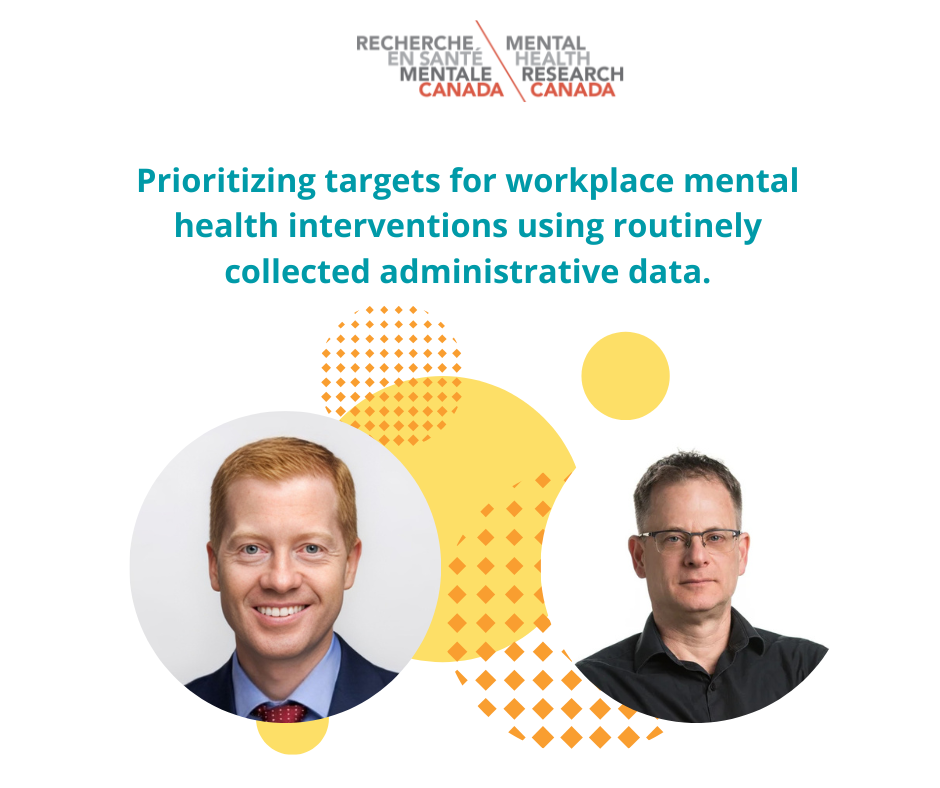Prioritizing targets for workplace mental health interventions using routinely collected administrative data.
Ted McDonald & W. Shane Journeay
The primary objective of this research was to identify the workforce groups most impacted by mental health diagnoses as part of their workplace injuries, with a particular focus on the diagnosis of a primary traumatic mental stress injury (TMSI), as well as other mental health diagnoses.
Methodology
The project analyzed routinely collected administrative data from workers' compensation claims which were linked with Canadian Chronic Disease Surveillance System to assess workers’ pre-existing mental health conditions. The data was then compared and analyzed for TMSI, other mental health injuries and claims without mental health injuries, with a specific focus given to occupational categories such as healthcare workers and public safety personnel.
Findings
Mental health injury claims are a small percentage of total approved claims but tend to last significantly longer.
25% of completed TMSI and other mental health claims lasted at least 420 days.
50% of TMSI claims remained open at the end of the study, with 60% of these exceeding 420 days.
Workers aged 25-44 were more likely to have approved mental health claims than younger or older workers.
Nurses had disproportionately high rates of TMSI claims, along with police, firefighters, and other public safety personnel.
Close to 60% of claimants had a prevalence of pre-existing mood and anxiety conditions.
Project Outreach
Findings will be communicated to WorkSafeNB and other provincial workers compensation boards nationally. Furthermore, there will be outreach efforts with specific occupational groups / stakeholders in workplace mental health and traumatic mental stress injuries pending publication of our results (in progress).
Resources Created
1-2 anticipated peer-reviewed publications in occupational and mental health research journals (In progress).
Multiple stakeholder presentations for knowledge dissemination and feedback (WCBs, occupational groups) (In progress).
Establishment of a novel data linkage process that can streamline future research in workplace mental health.

